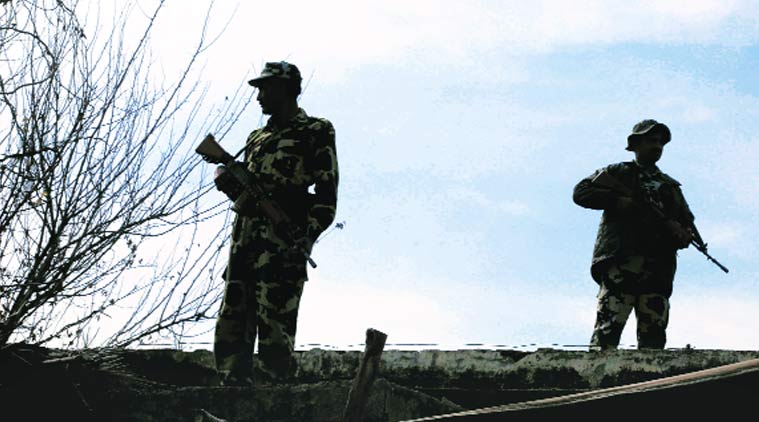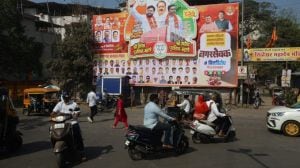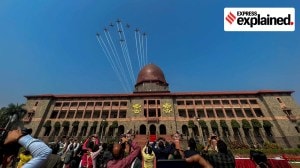Dictum and diaspora: India’s response to Pak has to be robust, even to the point of being military
India doesn't seem to have absorbed the lessons of its history with Pakistan
 Pathankot is the latest in the line of border and security breaches with terrible consequences for Indian lives and India.
Pathankot is the latest in the line of border and security breaches with terrible consequences for Indian lives and India.
Pathankot and Mazar-e-Sharif terror attacks were acts of war against India. They once again prove – if any proof was needed at all – Pakistan is a rogue state. It doesn’t abide by many international norms particularly in its relationship with India.
Since 1947, India’s media and foreign policy have been “uninterruptedly and uninterruptibly” obsessed with its relationship with Pakistan. And yet India’s leaders have failed to ensure that terrorists are not able to even look toward Indian borders, let alone breach them with tragic consequences for India. China or Israel won’t have put up with this for a nano second. Yet, India’s politicians blithely continue the nauseating dance of talks or no talks with Pakistan.
India can’t, and nor should it depend on the United States of America to “put pressure” on a rogue Pakistan. Indian leadership must stop outsourcing to the USA the warnings to Pakistan. By now India must know it is on its own in the war against Pakistani terror.
India is a peace-loving country and for it, peace with the world including Pakistan is important. But Pakistan has waged constant war while India has tried “uninterruptedly” to negotiate permanent peace. Pakistani polity and military must undergo a fundamental transformation from the stance of war to one of permanent peace before any negotiations with them have even the remotest chance of success.
For its internal political imperative Pakistani military and political elite continue to portray India as an existential threat to it. But Pakistan is no existential threat to India. Therefore India needs to down grade its policy on Pakistan from one of constant and too much attention to relative indifference except in the matter of preparedness for war against Pakistan and its terror – and in those latter matters India must remain ever vigilant and aggressive.
To the almost direct aggression – by Jaish-e-Mohammed a proxy of the ISI and Pakistani military – at Pathankot and Mazar-e-Sharif consulate, India can no longer afford to respond with chai in Lahore, foreign secretaries and national security advisors meeting or not meeting. India’s response has to be more robust even to the point of being military.
Pathankot is the latest in the line of border and security breaches with terrible consequences for Indian lives and India. India doesn’t seem to have absorbed the lessons of its history with Pakistan. Otherwise how could any terrorists enter India with impunity, commandeer a police officer’s vehicle and perpetrate severe death and destruction inside an Indian Air force Base so close to the international border mere months after doing the same at the Dinanagar police station in the same border state of Punjab?
Despite the prior intelligence about a possible terror attack, the terrorists succeeded in breaching security and do the damage they did. There have been legitimate questions raised about whether the response to the terrorists was well coordinated or without any hiccups in the chain of command. In that respect I wonder why there has been such resistance to the idea of the National Counter Terrorism Centre that could help streamline India’s response to any future attacks?
Once again it has been shown that Indian soldiers rank among the bravest in the world. Each time they are challenged, they bring glory to the country as they so clearly did in Pathankot.
Unfortunately one can’t say the same of India’s political leaders.
The politicians continue to bicker over trivia, while the military remains under equipped – often with antiquated weapons.
The defence of India demands of Indian politicians that they get past the petty jurisdictional and partisan squabbles.
Though not so far conclusive, there is sufficient evidence to raise legitimate questions as to whether some of India’s own may have been complicit in the Pathankot attack.
But that there is even the slightest evidence to suspect the hand of treason in the Pathankot attack must keep all reasonable and thinking Indians up at nights.
The cross border drug trade – perhaps inadvertently – helped the terrorists succeed; and the SP, his companions and a Military Engineering Services Employee from the Pathankot base are all being questioned to determine what transpired and whether any Indian was complicit in the Pathankot attack.
Shameful it is but one can’t really pretend to be surprised at the possible betrayal of India by some Indians. Punjab, once the most prosperous state of India, is now a cesspool of illicit drugs and corruption – the leaders of India must realize that much of India is in a state of dog eat dog world. For many of the 600 million poor the much talked about prosperity is a chimera.
India’s ruling elite must battle its collective myopia; otherwise the moral, ethical and financial corruption in the country will destroy the vitals of India, including its ability to defend itself.
- 01
- 02
- 03
- 04
- 05































